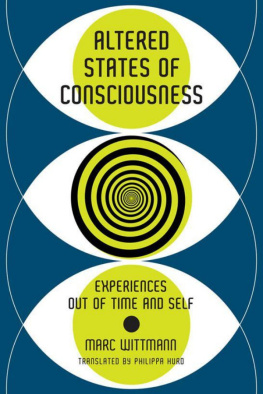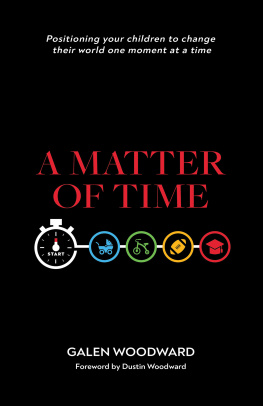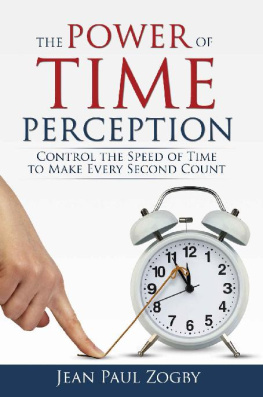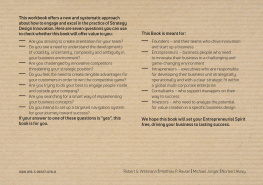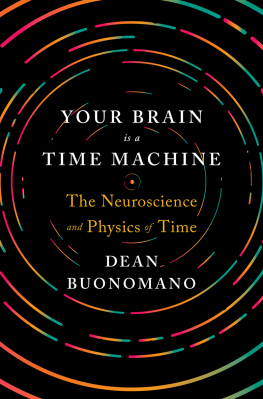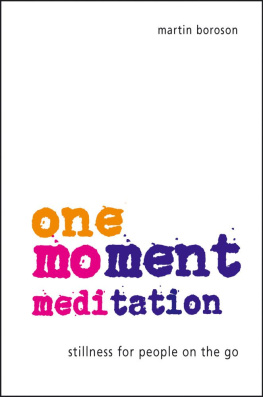Felt Time
Felt Time
The Psychology of How We Perceive Time
Marc Wittmann
translated by Erik Butler
The MIT Press
Cambridge, Massachusetts
London, England
This translation, 2016 Massachusetts Institute of Technology
Originally published as Gefhlte Zeit by Marc Wittmann, Verlag C. H. Beck oHG, Munich 2014
All rights reserved. No part of this book may be reproduced in any form by any electronic or mechanical means (including photocopying, recording, or information storage and retrieval) without permission in writing from the publisher.
Library of Congress Cataloging-in-Publication Data
Names: Wittmann, Marc, author.
Title: Felt time : the psychology of how we perceive time / Marc Wittmann; translated by Erik Butler.
Description: Cambridge, MA : MIT Press, [2015] | Includes bibliographical references and index.
Identifiers: LCCN 2015038278 | ISBN 9780262034029 (hardcover : alk. paper) | ISBN 9780262333870 (retail e-book)
Subjects: LCSH: Time perception. | TimePsychological aspects.
Classification: LCC BF468 .W57 2015 | DDC 153.7/53dc23 LC record available at http://lccn.loc.gov/2015038278
EPUB Version 1.0
Contents
Acknowledgments
My research at the Department of Psychiatry at the University of California, San Diego, began in October 2004 with a stipend from the Max Kade Foundation in New York, which enabled me to spend a year at the lab of the psychiatrist Martin Paulus. This contact was arranged by Franz Vollenweider, a psychiatrist at the Burghlzli, the Psychiatric University Clinic of Zurich, with whom I had conducted a research project on the effects of hallucinogens on temporal perception.
A new stage of research, based on many discussions with Martin Paulus and Alan Simmons, began in La Jolla, near San Diego. Given the structure of the German university system, my scientific career would have been over had the stipend not been granted. One year in San Diego turned into five. In the course of research conducted during this period, from 2004 to 2009, the thesis emerged that temporal experience depends on emotional and bodily states. We were able to show that bodily sense, emotions, and the sense of time are all closely tied to the activities of a structure in the brain, the insular cortex. I am indebted to Martin Paulus and Alan Simmons for support in performing and interpreting studies conducted by means of functional magnetic resonance imaging. Moreover, I received support for programming from Jan Churan. The success of my stay was assured by grants Martin Paulus and I obtained from two third-party sources. The National Institute of Health NIH/NIDA and the KAVLI Institute for Brain and Mind, San Diego, backed the project financially.
I was also able to develop my ideas about how the brain represents time through ongoing collaboration with Virginie van Wassenhove (then at the California Institute of Technology, now at the Cognitive Neuroimaging Unit INSERM-CEA, Paris) and A. D. (Bud) Craig of the Barrow Neurological Institute in Phoenix, Arizona. Bud Craig is the first researcher, drawing on understanding of the neuroanatomic and neurofunctional bases of bodily sense, to have advanced the thesis that the insular cortex is the decisive neural structure for the feeling of time.
My research on the phenomenon of time began earlier, first as a research assistant and then as a degree candidate working for Ernst Pppel at the Institute of Medical Psychology at the Ludwig Maximilian University of Munich. Professor Pppel, who oversaw my PhD in 1997 and my Habilitation in 2007, has always been a mentor.
From 2000 to 2004, I directed the research group Time and Cognition at the Generation Research Program, Bad Tlz, of the Ludwig Maximilian University. Martina Fink, Jan Churan, and Pamela Ulbrich were part of the team who developed test procedures and obtained funding for two projects from the Federal Ministry for Education and Research (Bundesministerium fr Bildung und Forschung, BMBF). Two proposals submitted to the German Research Foundation (Deutsche Forschungsgemeinschaft) were rejected. During the same period, Tanja Vollmer and I also pursued another project: Time Perception in Patients Near Death. The study was conducted at Medical Clinic III at the Clinic Grosshadern and was financed by the Else Krner-Fresenius Foundation.
Since October 2009, I have been employed at the Freiburg Institute for Frontier Areas of Psychology and Mental Health (IGPP). Thanks go to Ji Wackermann who invited me to come and work at the IGPP Freiburg, where I continue to focus on developing concepts of time perception and finding new fields of application. Important professional contacts and collaborators for the current studies include Karin Meissner (Institute of Medical Psychology) at the Ludwig Maximilian University of Munich, Niko Kohls (University of Applied Sciences, Coburg), Stefan Schmidt (University of Freiburg), and Anne Giersch of the Psychiatric University Clinic Strasbourg. In Freiburg I have been funded by two grants from the BIAL Foundation in Portugal as well as by the trinational neuroscience network NEUREX of the Upper Rhine Valley. I have also been supported by the European project COST ISCH Action TD0904 Time in Mental Activity: Theoretical, Behavioral, Bioimaging, and Clinical Perspectives (TIMELY). Thanks go to Argiro Vatakis who started and managed this network activity for researchers in the field of time perception. I benefited enormously from countless exchanges with like-minded colleagues.
Chapters of this book were read by my colleagues, whose expertise yielded valuable suggestions: Isabell Winkler, Dorothe Poggel, Karin Meissner, Katya Rubia, Evgeny Gutyrchik, Tanja Vollmer, Jakob Pacer, Niko Kohls, and Martin Paulus.
In addition, I received criticism and encouragement from friends who read the manuscript very attentively: Katharina Weikl, Jochen Rack, Klaus Meffert, and, of course, Oksana. Thanks go to my mother for helping me edit the English translation.
Years ago, I told my friend Dirk Thiel that I was looking for the internal clock governing the perception of time. His response was curt: Thats obvious: the heart. I didnt believe so then, but he might be right.
Introduction
This book is about the perception of time. It concerns our subjective feeling of the passage of time and our sense of duration. Ever since human beings first became self-aware, the phenomenon of time has posed a riddle. What is subjective time? How does our sense of time come about?
However, the book does not just ask questions. It also offers many answers, explaining how our feeling of time ariseswhether for a moment or in terms of life as a whole. In recent years, scientists have made an array of discoveries that, taken together, yield a new picture of subjective time. Through patient efforts, researchers have accumulated psychological and neuroscientific insights that provide a newand, more importantly, a convincinganswer to the age-old question of how we become conscious of time.
If time is the thread running through this book, the matter involves many fundamental processes anchored in daily life. Time comprises a net in which phenomena suddenly appear in a wholly different light. These phenomena include feelings, memories, happiness, language, scholastic and professional achievements, ones sense of self, consciousness, stress, mental illness, and mindfulness of ones own self and body. The net of time involves, among other things:
Why time speeds up as we grow older: increased routines in life and memory play decisive roles.
How a fulfilled life depends on our ability to choose freely between savoring the moment and deferring gratification; why impulsive people are more easily bored is a matter of time.
Whether every person has a particular brain rhythm that sets quicker people apart from slower onesan object of scientific research; does the brain rhythm speed up in fearful situations?
Next page

